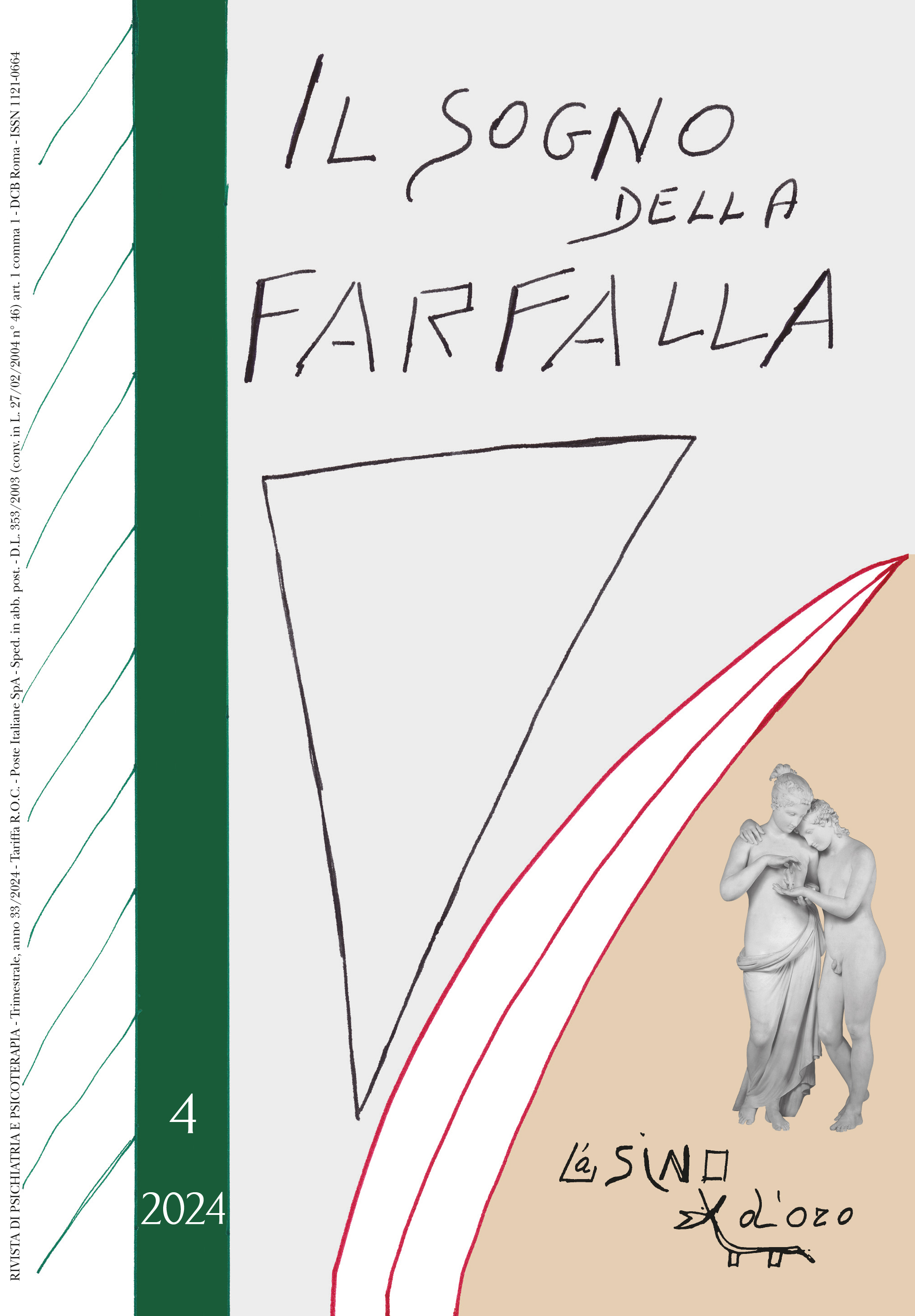Vecchie parole per un pensiero nuovo: prime note per una ricerca sull’alienazione nella tradizione del pensiero occidentale e nell’opera di Massimo Fagioli
DOI:
https://doi.org/10.14663/sdf.v33i4.927Parole chiave:
alienation, estrangement, Human Birth Theory, disappearance fantasy, projection, capability to imagineAbstract
The concept of alienation has crossed more than two thousand years of Western thought history. In Massimo Fagioli’s theoretical work, this concept takes on an entirely new meaning. The research question, to which some initial answers are attempted with this essay, is to recognize Fagioli’s attribution of a new meaning with respect to a multi-thousand-year-old tradition. The work recalls some fundamental moments in the theories of alienation. From heretical and Christian Gnosticism to Hegel, passing through Neo-Platonic thought, Scholasticism and medieval mystics, alienation has always been defined as a theological-religious concept, including definitions such as “extra-mundane light penetrating the darkness of worldly reality”, “God becoming man”, “the becoming of the spirit towards absolute knowledge”. A revolution occurred with Feuerbach, who introduced the concept of “religious alienation”: from a divine or spiritual movement, alienation became a human mental activity of altering the relationship with reality. Marx placed alienation at the center of the clash between labor and capital, stating that the possibility to overcome religion and religious alienation could only be the outcome of a revolutionary break. In Fagioli, alienation,
conceived as a dynamic of putting outside of oneself, which is distinct from projection, is an essential dimension of the dynamics of human birth and development. Connected at birth to the annulment pulsion as the disappearance fantasy, it can turn, in the development of the human being, into a pathological dimension in which the mind is lost, as well as, on the contrary, into the capacity to place, or recognize, one’s own inner image outside oneself, in a human reality other than oneself.


